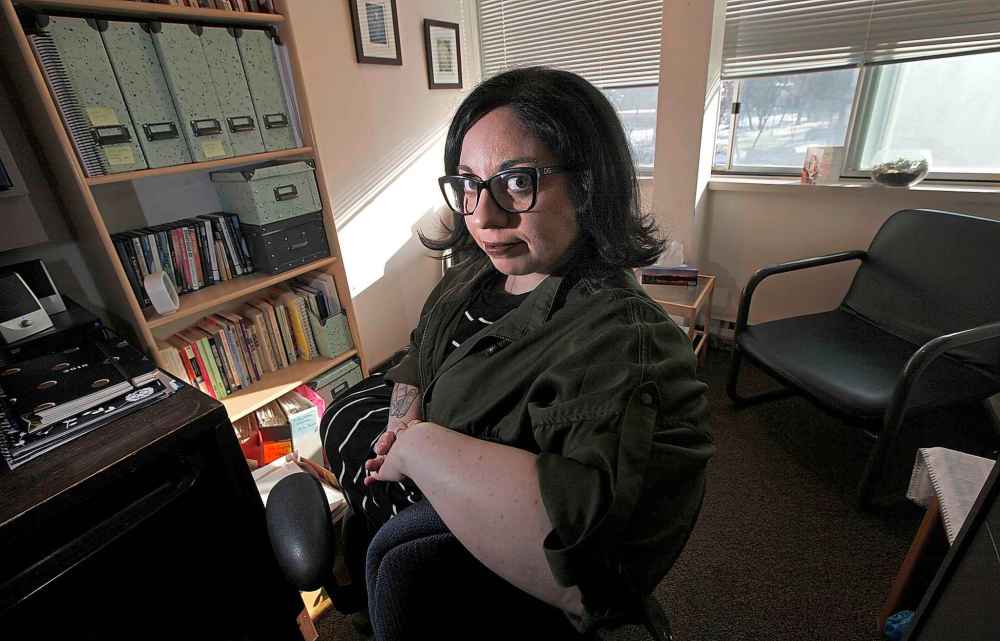Prof lauds Manitoba decision to cover costs of protecting sex assault victims’ privacy in court
Read this article for free:
or
Already have an account? Log in here »
To continue reading, please subscribe:
Monthly Digital Subscription
$0 for the first 4 weeks*
- Enjoy unlimited reading on winnipegfreepress.com
- Read the E-Edition, our digital replica newspaper
- Access News Break, our award-winning app
- Play interactive puzzles
*No charge for 4 weeks then price increases to the regular rate of $19.00 plus GST every four weeks. Offer available to new and qualified returning subscribers only. Cancel any time.
Monthly Digital Subscription
$4.75/week*
- Enjoy unlimited reading on winnipegfreepress.com
- Read the E-Edition, our digital replica newspaper
- Access News Break, our award-winning app
- Play interactive puzzles
*Billed as $19 plus GST every four weeks. Cancel any time.
To continue reading, please subscribe:
Add Free Press access to your Brandon Sun subscription for only an additional
$1 for the first 4 weeks*
*Your next subscription payment will increase by $1.00 and you will be charged $16.99 plus GST for four weeks. After four weeks, your payment will increase to $23.99 plus GST every four weeks.
Read unlimited articles for free today:
or
Already have an account? Log in here »
Hey there, time traveller!
This article was published 31/05/2019 (2388 days ago), so information in it may no longer be current.
Governments should expect to pay for sexual-assault victims to be represented in court as Canadian law evolves, a legal expert says.
University of Manitoba law professor Karen Busby, who has studied sexual-assault law for about 30 years, said it’s a good sign the province is covering the legal costs of complainants who want to limit how much of their personal information can be used by the accused during the court process.

"The government should be anticipating that there will be more cases," she said.
On Thursday, Manitoba’s justice minister announced the department is spending $65,000 this year to cover legal costs for an independent lawyer to be appointed in sexual-assault cases that involve requests for records containing the victims’ personal information.
!function(e,t,s,i){var n=”InfogramEmbeds”,o=e.getElementsByTagName(“script”)[0],d=/^http:/.test(e.location)?”http:”:”https:”;if(/^/{2}/.test(i)&&(i=d+i),window[n]&&window[n].initialized)window[n].process&&window[n].process();else if(!e.getElementById(s)){var r=e.createElement(“script”);r.async=1,r.id=s,r.src=i,o.parentNode.insertBefore(r,o)}}(document,0,”infogram-async”,”https://e.infogram.com/js/dist/embed-loader-min.js”);
For more than 20 years, complainants have been allowed to have a lawyer represent them to help guard their privacy when those accused of crimes wanted to access third-party records about the complainants as part of their defence.
But six months ago, Canada’s rape-shield laws were expanded, allowing lawyers to represent victims in court when the accused wants to bring in evidence of the victim’s sexual history or use records they already have — including medical records, therapy records, journal entries, text messages and online communication — to defend themselves against sexual-assault allegations.
It’s up to a judge to decide how much of that personal information will become part of the public record in court. The hearing happens in private, with the Crown prosecutor, the defence lawyer and, if one is appointed, the lawyer representing the victim.
‘These changes add to the protections for complainants of sexual assault and sexual-nature crimes, and they do serve a very important role in protecting a complainant’s privacy and dignity’
– Winnipeg lawyer Jennifer Gaba
Winnipeg lawyer Jennifer Gaba took on that role earlier this spring and was the first to be independently appointed for sexual assault victims in Manitoba since the updated laws came into effect in a case in which the accused doctor already had access to medical records and sought to use them against several women who have accused him of sexual assault.
"These changes add to the protections for complainants of sexual assault and sexual-nature crimes, and they do serve a very important role in protecting a complainant’s privacy and dignity," Gaba said.
"It’s a unique role — having an independent lawyer for the complainant puts somebody in the courtroom who has the specific role of considering how these factors under the Criminal Code apply in a particular case."
She said the judge, Crown and defence lawyer all have their own roles in a trial, "but counsel for the complainant, their purpose is to make everybody else stop and think about this particular information that’s being sought. It’s personal to the complainant, and is it in society’s interest to allow this information to go forward?"

Busby predicts courts across the country will see an increasing number of independent lawyers appointed to look after victims’ rights, particularly after the Supreme Court of Canada ruled last week it’s a judge’s responsibility to ensure there’s a proper hearing before details of a complainant’s sexual history are allowed to be heard in court.
"So you don’t wait for the Crown to object. The obligation falls to the judge to make sure that the evidence isn’t introduced. So I think we might see a more robust application of sexual-history provisions, because they’re just run roughshod in a lot of cases," Busby said.
Busby is part of a team of U of M researchers looking into how and why sexual assault cases fall apart. There are about 15 sexual assault trials a year in Manitoba, she said.
"Fundamentally, what the trial process is about is saying, we don’t believe what happened to you, you’re exaggerating, you’re lying, you’re faking, you’re vindictive, you have some kind of motive. I mean, it’s a brutal, brutal process, and you have to be pretty strongly motivated to allow your own healing to take the back seat because the matter’s going to stay alive until after the trial is over. And with the likelihood of a conviction being so low, I don’t know what it will take to change," she said.
Protecting privacy is particularly important in sexual assault cases, said Jerra Fraser, a counsellor in Klinic’s sexual assault crisis program.
"Anything that really looks at what’s going to give survivors more choice, give survivors more privacy, give survivors more control — anything that asks that, I think, is a step toward being more trauma-informed."
katie.may@freepress.mb.ca
Twitter: @thatkatiemay

Katie May is a general-assignment reporter for the Free Press.
Our newsroom depends on a growing audience of readers to power our journalism. If you are not a paid reader, please consider becoming a subscriber.
Our newsroom depends on its audience of readers to power our journalism. Thank you for your support.









